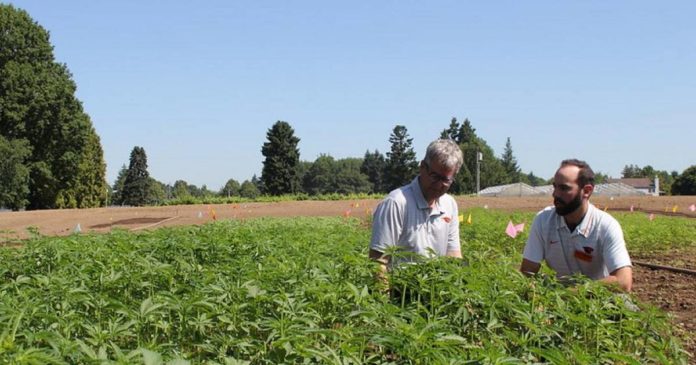Oregon State University’s Global Hemp Innovation Center has been cashed up to explore economic opportunities for hemp in western USA.
The $10 million grant from the U.S. Department of Agriculture’s National Institute of Food and Agriculture’s Sustainable Agricultural Systems grant program will fund a five- year project to be carried out in partnership with other institutions.
The regions covered include Washington, Oregon, Nevada and California east of the Cascade-Sierra Nevada Mountains from Canada to Mexico. The researchers will attempt to determine the best hemp strains for the production of grain, fiber, and “essential oil” (assumed: CBD oil).
It will also delve into how to incorporate hemp into existing production systems, examine processing hemp material and what the likely growth markets to support industry expansion will be.
The largest hemp research facility in the USA, OSU’s Global Hemp Innovation Center was established back in 2019 as a hub bringing together a range of stakeholders to address many important unanswered questions about the hemp industry. Some of those questions remain unanswered today.
“While enthusiasm for hemp has grown, there is still a tremendous lack of knowledge about the crop,” said Center Associate Director, Jeffrey Steiner.
The current Innovation Center isn’t the first facility of its nature hosted at OSU. Way back in the 1880s and through until 1932, OSU – then known as Oregon Agricultural College – had a hemp research center that worked with the U.S. Department of Agriculture scientists.
This grant also isn’t the first awarded to OSU this year from the USDA in relation to hemp. In March, it received nearly $300,000 to fund research into feeding spent hemp biomass to cattle.
Oregon is a hemp powerhouse – but not without its challenges; some of which are giving the sector a bit of a black eye. It has been recently widely reported more than half of the farms licensed to grow hemp that have been inspected by state officials were found to be growing marijuana illegally.
While marijuana can be legally grown in the state, this activity operates under a different program and illegal cultivation is impacting those playing by the rules of the adult-use market.


